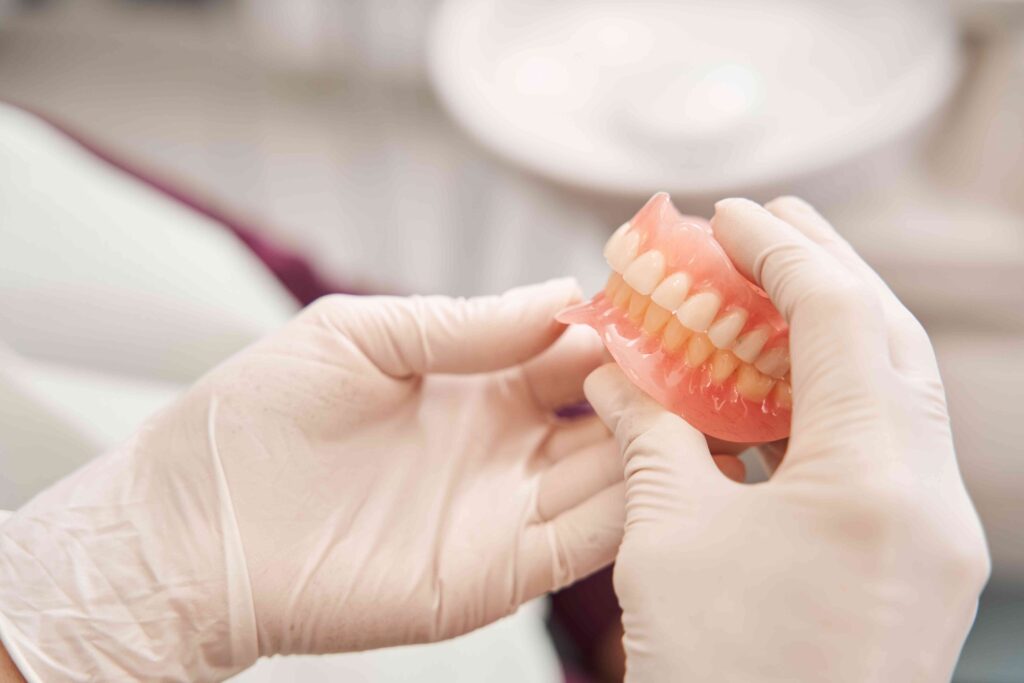Do Dentures Affect Your Nutrition?
May 8, 2025

Dentures today aren’t like the ones that your grandparents used to wear. They transform the appearance and function of your smile, helping you to complete tasks that you once found challenging. However, as well as today’s dentures fit, there are still some things that are challenging to eat without your natural teeth. That can bring about concerns about nutrition. Continue reading to learn more about dentures and their impact on nutrition.
Do Dentures Impact Nutrition?
When you first get your dentures, it can take some time to learn the best way that you can eat with them. This means that your prosthetic can have an influence on the types of nutritional foods that you are consuming. Researchers at the Regenstrief Institute and Indiana University School of Dentistry studied the health of patients after they received their dentures. After approximately two years, it was found that patients experienced a decline in key nutrition markers that were not found in people who didn’t wear dentures. Ultimately, when you have dentures, it is especially important to be mindful of what you are eating so you can get the nutrients you need to thrive.
8 Nutritious Tips for Denture-Wearers
In order to get the vitamins and minerals you need, it’s important that you consider the types of foods that you are eating with your prosthetic. Here are some tips to help you maintain healthy nutritional values.
- Pick soft, easy to chew foods. This may include cooked vegetables, yogurt, eggs, fish, and soft fruits. If you are unable to fully chew your food, you could experience issues with indigestion.
- Consume plenty of protein! Good options for denture wearers include tender meat, eggs, beans, and tofu.
- Consume calcium and vitamin D-rich dairy products.
- Eat soft vegetables, fruits, and whole grains for fiber.
- Avoid stick and hard foods. These can dislodge and damage your dentures.
- Drink plenty of water to stay hydrated. Denture-wearers are especially susceptible to dry mouth.
- Consider taking nutritional supplements if necessary.
- See your dentist every six months for routine cleanings and checkups. Even if you don’t have any natural teeth, your dentist will still screen you for oral cancer and ensure that your dentures are in optimal shape.
Now that you have a brand-new smile, it is the perfect chance to reevaluate your diet to ensure that you are getting the nutrients you need to stay strong and healthy!
About the Practice
At Applegate Dental PLLC, we have a team of dentists serving patients in the West Seneca community. With their combined experience and expertise, patients can get pretty much anything they need under one roof. To learn more about dentures or to schedule an appointment, visit our website or call (716) 668-4646.
No Comments
No comments yet.
RSS feed for comments on this post.
Sorry, the comment form is closed at this time.

